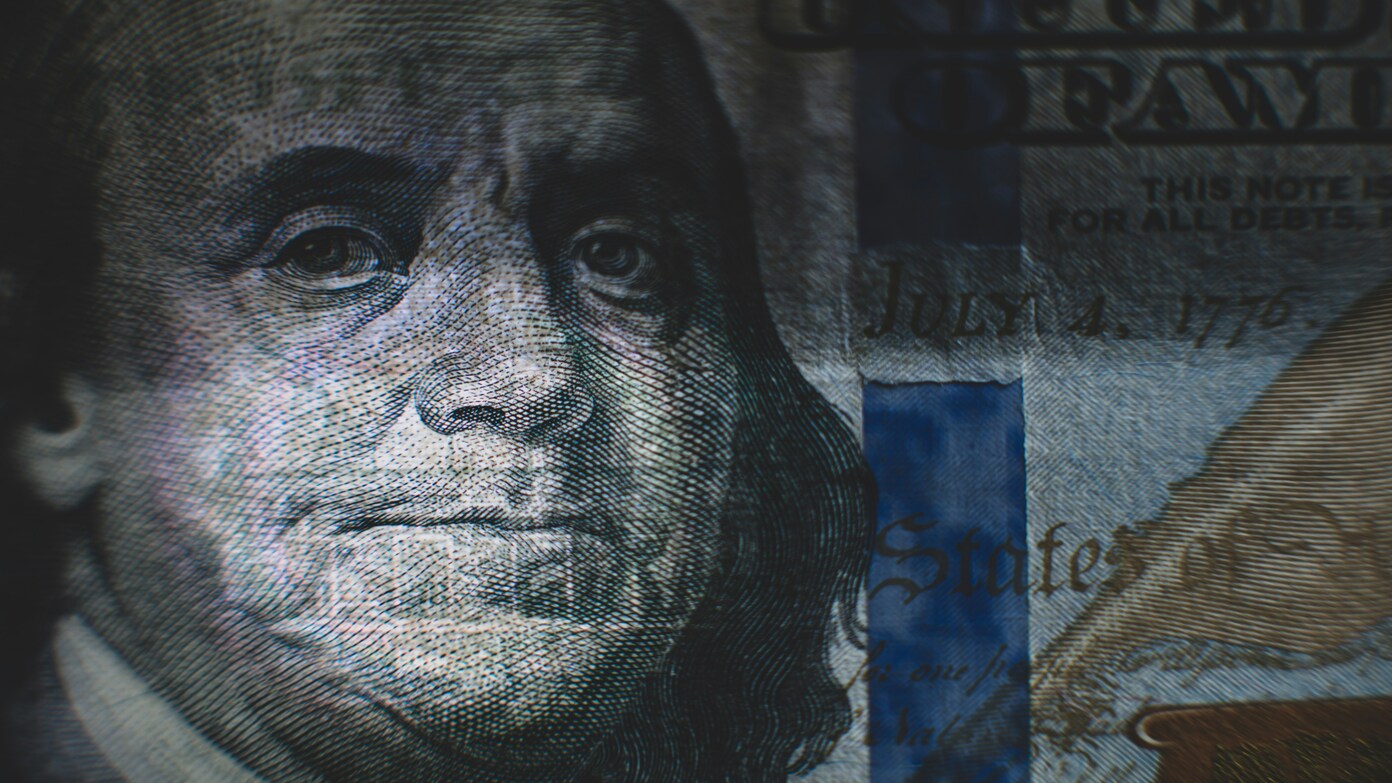The dollar’s rough year
The U.S. dollar has been in retreat since the start of President Donald Trump’s second term. In fact, 2025 is the dollar’s weakest opening stretch since the 1970s. The U.S. Dollar Index, which measures its value against other top currencies, is down by about 10 percent since January.
This might seem like some theoretical problem to most Americans. But the reality is, a weak dollar has real effects that are visible in your life—from the price of groceries you purchase at the store to the amount of worth your money holds when you’re abroad.
Why is the dollar falling?
The value of a currency is, to a large extent, based on demand. The more people all over the world have confidence and want dollars, the higher it goes. When confidence drops, the value of it plunges.
Demand for the U.S. dollar has fallen in recent times. Investors worry about inflation, growing national debt, and political uncertainty. Others have pulled money from U.S. assets like Treasury bonds and shifted to other currencies.
AphoenIApsitemon on top of all that, conflicting signals from the administration, sometimes favouring a strong dollar and sometimes one that is weakening, have put world markets on notice. For a currency once thought to be the world’s shoo-in, there is less faith than before.
Read this later: If you invested $1,000 in Abbott Laboratories 10 years ago, here’s how much you would have today
Does Washington want a weak dollar?
Here is where it becomes complicated. Even within the U.S. government, there is no agreement.
Treasury Secretary Scott Bessent has argued in favor of having a strong dollar, saying its role as reserve currency benefits America.
Vice President JD Vance has argued the opposite, asserting the stronger dollar hurts American exports by increasing the prices of U.S. products in foreign markets.
Even President Trump himself has at times spoken very positively about the benefits of a weak dollar, saying other countries depreciate their currencies to stimulate trade.
This internal conflict has further driven volatility, which only further stresses the value of the dollar.
What it means for your wallet
Rising prices at home
A weaker dollar can make American exports cheaper, which continues to enable American producers to sell overseas. But the other side is imports—everything from computers to shoes—cost more.
Merchants would, in turn, charge those on consumers. Add the new tariffs from Trump’s trade policy, and the ultimate effect could be higher prices at stores, especially during the holiday shopping season. Bottom line: your paycheck won’t stretch as far as it once did.
More expensive travel
Planning a vacation overseas? You’ll likely notice the weaker dollar when converting money. A hotel stay in Europe, a meal in Asia, or even public transport in another country will feel pricier. For families traveling abroad, this can quickly add hundreds of dollars to a trip.
Read this later: Good news for VA Benefits – Lawmakers propose two changes that will benefit thousands of veterans and their families in a historic bill in…
Investment and retirement funds
For investors who are invested in assets denominated in foreign currency, a falling dollar can be a positive thing, since their assets are worth more compared to the dollar.
But for most Americans, whose savings are tied to U.S. assets like 401(k) retirement plans, the weaker dollar reduces purchasing power. That means the money you’ve saved doesn’t buy as much as before. While this might not cause an immediate hit, over time it can chip away at financial security.
Will the dollar bounce back?
The big question is whether the dollar will recover. There have been temporary signs of strength in recent times following Federal Reserve Chairman Jerome Powell’s indication of prospects for softer rate cuts in the future. That gave the dollar a temporary boost.
However, the majority of economists believe that the dollar will slowly get weaker in the next few years. Oxford Economics strategist Michael Pearce summed it up like this: “The dollar has been relatively strong for a very long time and seems to be overvalued, so we anticipate it will keep falling, but at a slow rate.”
The good news, he indicated, is that the US economy is still going to do better than most others in the remainder of the world, and that may keep the dollar from falling too steeply.
Read this later: Automatic payments of $1,000 will be issued in the new wave of credits on November 15 energy bills – These are Louisiana’s requirements to…

